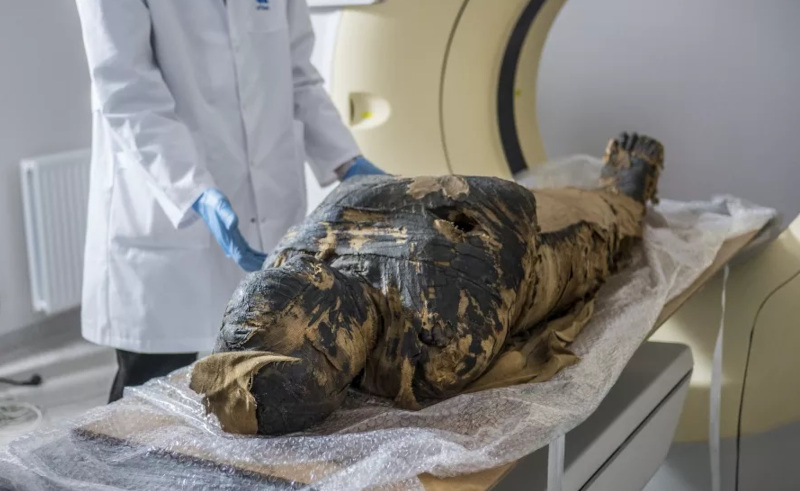This is the World's Only Known Pregnant Egyptian Mummy
When the researchers at the Warsaw Mummy Project in Poland scanned the mummy of what they believed to be a male priest, they instead found an unknown woman... and the remains of a fetus within her.

The experts behind the Warsaw Mummy Project believed they had their hands on the mummy of a male priest, and they had every reason to think so. When the University of Warsaw in Poland received the mummy in 1826, it was contained in an intricate coffin, clearly labelled as belonging to a priest named Hor-Djehuty from ancient Thebes. But then, in 2016, the Warsaw-based researchers examined the mummy through x-ray and found that it was not in fact Hor-Djehuty, but rather an unknown woman. Then they made another discovery: the woman was not alone. The x-ray images revealed a tiny foot in the woman's pelvic area, indicating that she was pregnant at the time of death, and making what the researchers described as "the only known case of an embalmed pregnant individual."
The discovery is hoped to shed some light on the customs and practices of pregnancy in ancient times. What intrigued the researchers the most was the fact that the fetus was still there in the first place. This woman was buried with four other mummified bundles, each containing one of her internal organs, as was customary at the time. But while her heart, liver, lungs, and stomach was removed, embalmed and placed back in her abdomen, the same had not been done for her baby.
Was the baby kept inside for practical reasons? Was there a religious explanation for this - that the fetus would have a safe trip to the afterlife if left undisturbed, or that an unborn child would not make it to the afterlife? It was not as if the woman's family could not afford a sophisticated embalming - she had been buried with valuable amulets, showing her high social standing, alongside the high skill with which she had been embalmed. So if this was the work of some of the better embalmers of her time, why was the baby seemingly neglected? These questions, alongside more queries into Ancient Egypt's medical practices, are what researchers hope to uncover with the help of this unique discovery.
- Previous Article Dr.Sisilove or How (Not) To Diffuse A Bomb
- Next Article Our Top Picks for the Cutest Homegrown Summer Tops
Trending This Week
-
Apr 13, 2024
























